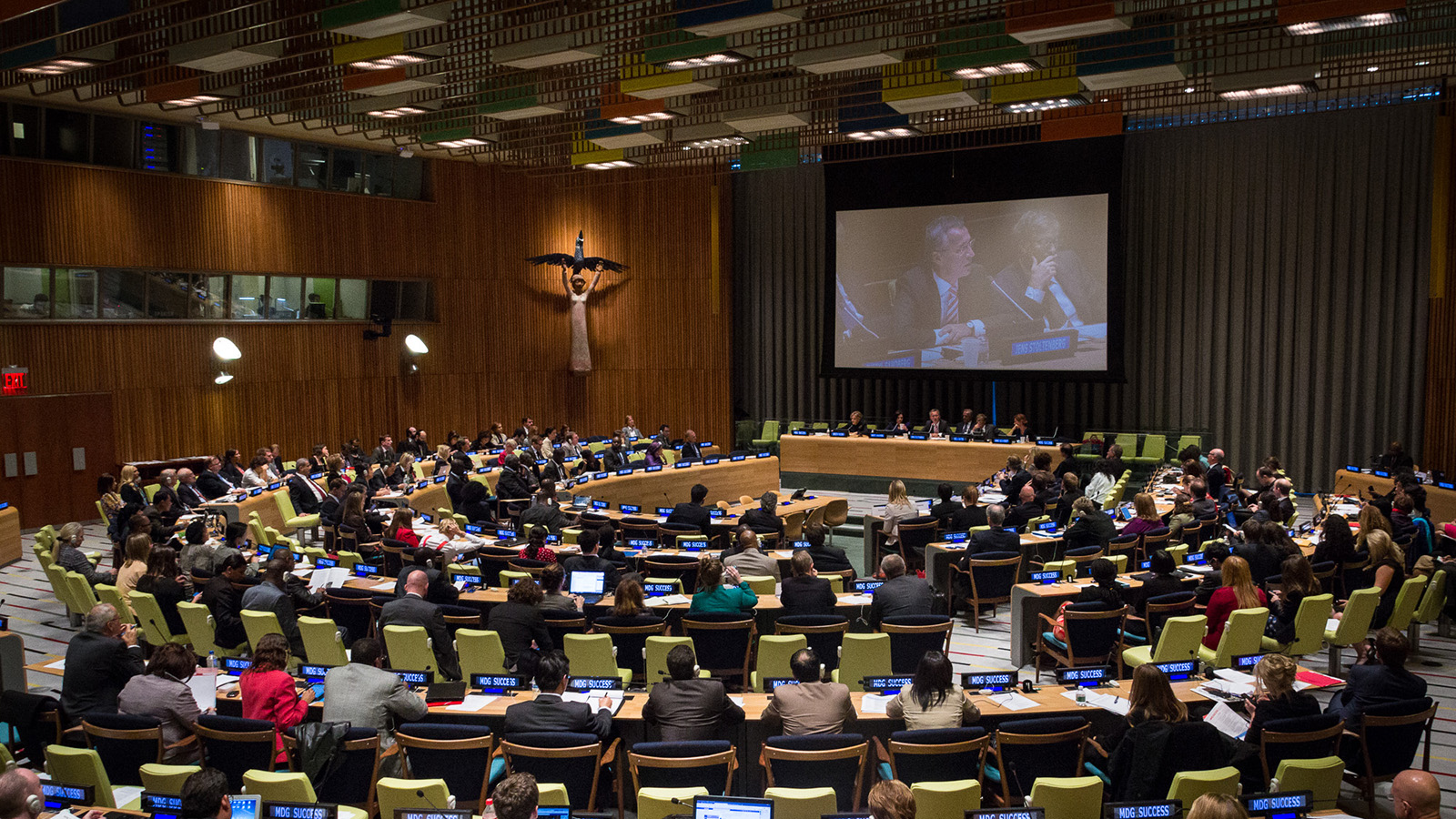Make digitalization a topic of global sustainability policy
Only if digital change and the Transformation towards Sustainability are constructively interlinked we can make progress with environmental protection, climate-change mitigation and human development. The prerequisite is to systematically embed the combined topic of digitalization and sustainability in the United Nations system. The High-level Political Forum for Sustainable Development (HLPF), which is currently meeting in New York, offers an ideal platform for this, according to a policy paper entitled ‘Digital Momentum for the UN Sustainability Agenda in the 21st Century, which is published by the WBGU today.
UN summit on ‘Digitalization and Sustainability’ convened
As the central forum for sustainability issues in the United Nations, the HLPF 2019 should also
champion a UN Summit on Digitalization and Sustainability in 2022 – 30 years after the Earth
Summit in Rio de Janeiro. The central theme of this summit should be to reach agreement on the
necessary fundamental course to be pursued to achieve digitally enhanced sustainable development
and to contain or avoid the risks of digital change. One key result could be a charter that
enumerates the basic issues that are relevant for a sustainable Digital Age and identifies political
starting points. The WBGU has submitted a draft for this in its current report ‘Towards Our Common
Digital Future’.
Ideas to stimulate the international sustainability debate
Against this background, the WBGU would like to introduce into the discussion four ideas directly
related to the Sustainable Development Goals (SDGs):
First: promote a global (environmental) awareness among people worldwide by providing a
stronger future-proof education. The focus should be on enabling people to actively shape digital
change and the Transformation towards Sustainability. Open data relating to sustainability and
virtual learning environments are important elements for experiencing ecosystems. In concrete
terms, an integrated programme for future-proof education should be developed, UN processes
should be opened up to citizen-science projects, and an International Information Union should be
founded to collect, process and publish sustainability-related data.
Second, establish a digitally enhanced circular economy. The transition from linear and
resource-intensive value chains to a near-complete circular economy is a key component of the
Transformation towards Sustainability. Digital data acquisition and processing offer great potential
for this. Environmentally harmful emissions and resource depletion should be recorded across all
sectors of the economy and value chains, and greater efforts should be made to implement the
3Rs strategy (reduce, reuse, recycle) at the international level.
Third, modernize sustainability policy itself by using digital solutions. Digitally enhanced
governance can help improve the transparency of political actions, as well as the participation and
worldwide networking of political actors. Coordination within the UN system should be intensified
by establishing a ‘UN Digitalization Initiative’; a ‘UN Framework Convention on Digital Sustainability
and Sustainable Digitalization should be negotiated; and a globally uniform set of indicators
for the SDGs should be developed to facilitate the comparability and verifiability of national
reports.
Fourth, further develop the global sustainability agenda beyond 2030 against the background
of the opportunities and risks of the Digital Age. The UN should prepare for these future challenges
in good time. The WBGU recommends convening a UN summit on ‘Sustainability in the Digital
Age’ in 2022 – 30 years after the Earth Summit in Rio de Janeiro – to set the course for continuing
the sustainability agenda beyond 2030. A key outcome could be the adoption of a charter
entitled ‘Towards Our Common Digital Future’.
